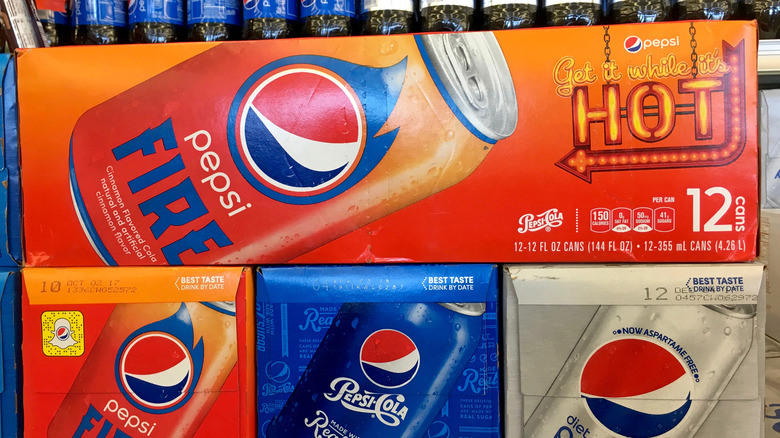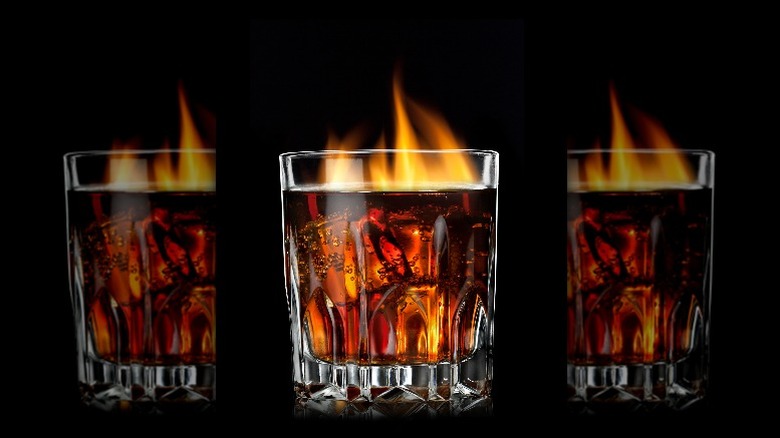What Exactly Did Pepsi's Limited-Edition 'Hot' Flavor Taste Like?
We may receive a commission on purchases made from links.
Most people have chosen a side between Coke and Pepsi — yes, it's proven that they taste different — but, occasionally, the two cola giants will try to lure fence-sitters with exclusive novelty flavors. After all, who can forget Diet Coke Feisty Cherry or Orange Vanilla Coke? Or, on the other side of the bipartisan pop wars, Pepsi Peach and Pepsi Lime? And lest we forget, Pepsi also brought us the now-discontinued Kona line of coffee-flavored drinks for those who liked a little side of caffeine with their caffeine.
One such novelty flavor was Pepsi Fire, a limited-edition cinnamon-flavored soda that was set to last eight weeks of summer in 2017. Lauren Cohen, Director of Marketing for Pepsi, stated in a press release at the time that "Pepsi Fire [was] going to ignite [the] season with an unexpected and spicy twist to our classic cola taste." The rollout followed a $2.3 million 2004 trial of Pepsi Fire in Asian markets.
Pepsi billed the Fire variety as a hot and spicy drink. The human tongue perceives cinnamon as spicy due to aptly-named cinnamaldehydes, oils that affect flavor receptors on the tongue and shoot back warnings about potential irritants. (Yes, those Atomic Fireballs and Big Red gum from your childhood were actually aggravating your mouth!)
Reviews were seriously mixed
The internet had a lot to say about Pepsi Fire, but not all of it was good. Actually, most wasn't. Taste of Home was disappointed by trying the soda, saying that "it didn't deliver a strong cinnamon flavor." Soda Fry disagreed, saying the cinnamon note was "prominent," but bemoaning that "it isn't spicy at all." The top critical review on Amazon said that "the drink [tastes] horrible," declining to comment further.
As usual, the anonymous commenters of Reddit brought a dose of hilarity with their trademark brutal honesty. A verbose review compared Pepsi Fire to "watered down Fireball Whiskey without the satisfaction of the 40% alcohol content to numb my sensibilities to the taste." Another bon mot stated that the drink was "probably the only soda I've ever had where I thought I'd vomit from it."
Maybe it was a good thing that Pepsi Fire was only available for a short time, as it seems that a lot of people didn't particularly enjoy it. Don't feel too bad for the company, though: Its annual revenue is $86.4 billion. That's plenty of cash to formulate and market-test some new Pepsi flavors that will hopefully last long-term with favorable reviews from the general public or, at least make sure that they are missed when they disappear.

